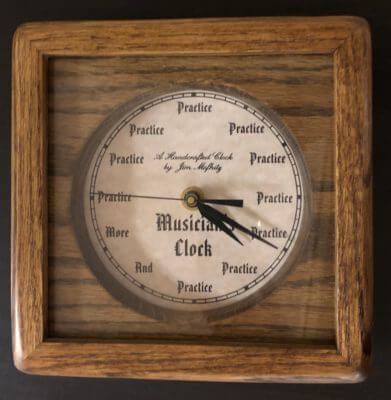When many people start off, they treat piano practice and piano performance the same way: we run through the piece trying to hit all the notes and rhythms. While there is a place for this, we can make a clearer distinction between our regular practice and our performance mindset. Performance can be improved the same way we improve at piano in general: practice. And most of us have heard of practicing performing, maybe even done it. One thing to keep in mind as we practice performing is this: There's a fundamental difference between the best way to practice and the best way to perform.
Regular Practice
In our everyday practice, the focus is on accuracy, in every sense of the word: notes, rhythms, dynamics, articulation, down to how exactly our muscles are moving to make the sound we want. While one way to practice is running through the piece, it can sometimes be more helpful to isolate problem spots or work on a particular technique. We can change the dynamics or articulation of a passage to double-check our knowledge. While practicing either a tricky spot or running through the whole piece, it helps to just have one focus in mind so we can nail that particular thing before going on to the next issue: for example, focusing on the the notes without worrying about dynamics at first.
Performance Practice
Our focus when performing should be a little different for optimum results. Instead of pure accuracy, we want to be able to focus on being in the moment, creating the sound we hear in our head and want to create to connect with our audience. We want to be comfortable enough to even change musical ideas in the moment, should we "hear" something in our head different from what we practiced, and the practice technique of changing things up can prepare us for that.
There still can be a gap between piano practice and piano performance. To bridge that gap, we can change things up more to see how well we really know the piece. For example, playing with our eyes closed helps us check muscle memory. Running through the piece in our head away from the piano checks intellectual memory. Doing jumping jacks before running through the piece checks how well we can start with a raised heart rate, something that affects many people onstage. The idea is to find what makes performing difficult for us and think of a way to address that issue.
So what?
As we differentiate piano practice and piano performance, we may find that our practice becomes more effective and our performances are more enjoyable and engaging. It's worth changing our habits to find out!

